ECN Forex Trading Account Explained: Unlocking Key Details for a Seamless Trading Experience
Abstract:Seeking forex trading without any third-party involvement? You have an electronic communication network (ECN) by which you can trade through a computerized system that matches buy and sell orders automatically, eliminating the need for a third party. ECN forex trading especially helps investors across different geographies seeking a secure transaction without a third party. With ECN, investors receive privacy, the luxury of automated investing, and the approach to trade beyond normal market hours.
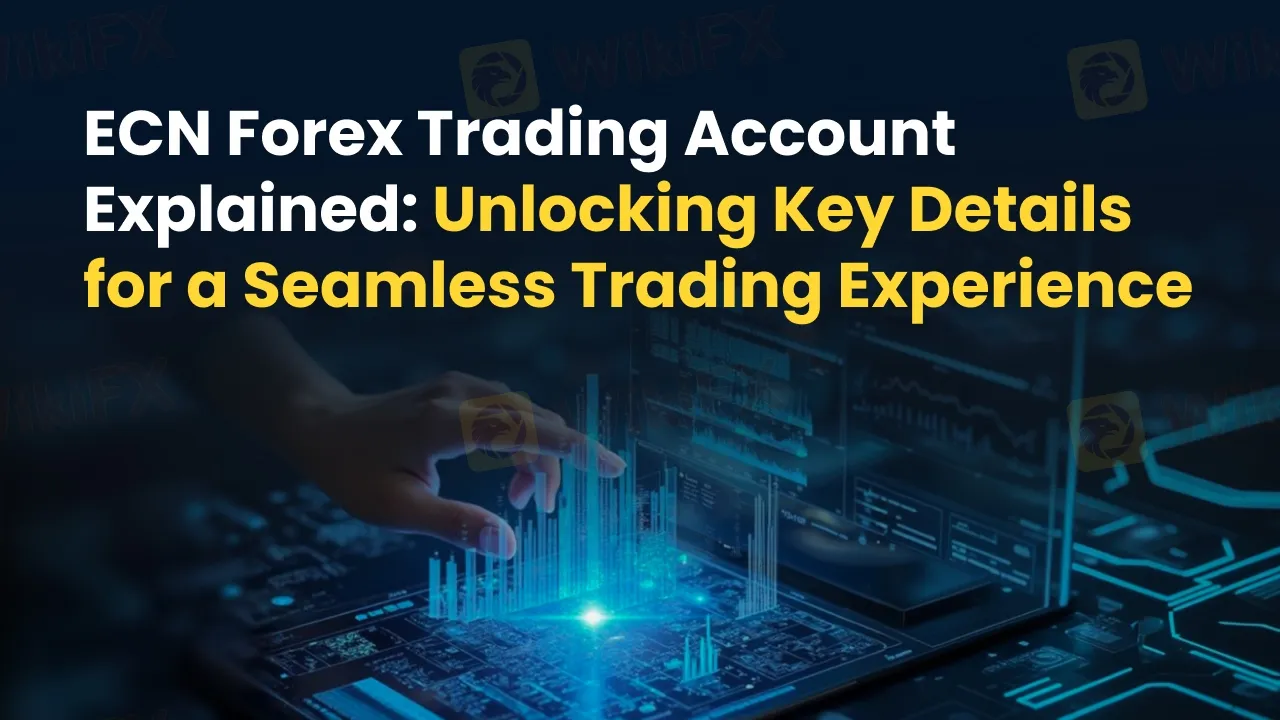
Seeking forex trading without any third-party involvement? You have an electronic communication network (ECN) by which you can trade through a computerized system that matches buy and sell orders automatically, eliminating the need for a third party. ECN forex trading especially helps investors across different geographies seeking a secure transaction without a third party. With ECN, investors receive privacy, the luxury of automated investing, and the approach to trade beyond normal market hours.
The downside, however, is that certain ECNs can apply access fees, commission charges and interfaces, which may not be that user-friendly compared to those of conventional broker platforms. In this article, we have shared extensive details about ECNs and how they ensure a seamless forex trading experience for investors. Take a look!
The Role of ECNs in Direct Investor Transactions
As stated above, ECNs allow direct trading by individual traders and major brokerages. As a result, investors across different locations can trade quickly and seamlessly. ECNs are mandated by the U.S. Securities and Exchange Commission (SEC) to register as broker-dealers. These systems function as computerized platforms that display the best bid and ask quotes before matching and executing orders automatically. They enable major exchange and after-hours trading, ensuring automated and faster trade execution.
The SEC categorizes ECNs as alternative trading systems (ATS), which earn through transaction fees. They limit the requirement of a third party to execute orders by exchange or OTC market makers. This makes for full or partial execution of the orders. ECNs usually apply limit orders, beneficial in after-hours trading as the prices become volatile then.
Pros and Cons Associated with ECN Trading
ECNs facilitate trading outside regular market hours, allowing participation from traders who remain unavailable during the day or like flexible timing. It also helps avoid wider spreads usually associated with a traditional broker. At the same time, the commissions and fees remain comparatively lower. Those seeking to secure privacy can get a greater degree of anonymity, making it suitable for large-scale transactions. What holds ECN traders back is the cost attached to it - comparatively higher access fees and commissions. Commissions can be costly per trade and can potentially lower your profitability. Additionally, ECNs remain less user-friendly compared to traditional broker platforms, as the former do not have integrated charts and data. So, beginners might struggle with trading when using ECNs. Also, the wider spreads can complicate the break-even or stop-loss point calculations for some investors.
Summing Up
ECN forex trading offers a transparent, efficient, and secure way to participate in global currency markets without relying on intermediaries. By enabling direct trade execution and real-time access to market prices, it provides traders with better control and enhanced privacy. However, its benefits come with certain trade-offs — such as access fees, commissions, and a steeper learning curve due to less intuitive interfaces.
For seasoned traders seeking speed, transparency, and anonymity, ECNs are a solid choice. But for beginners, traditional broker platforms might offer a smoother and more guided experience. Understanding both the advantages and limitations of ECN accounts is therefore essential before deciding whether this trading model aligns with your forex goals.
To catch the latest on ECN forex trading, join WikiFX Masterminds.
Join this group (ID:EODL15W5IH) using the following steps -
1. Scan the QR code placed right at the bottom.
2. Download the WikiFX Pro app.
3. Afterward, tap the ‘Scan’ icon placed at the top right corner
4. Scan the code again.
5. Congratulations on joining the group.

Read more
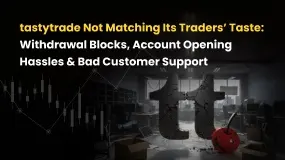
tastytrade Not Matching Its Traders’ Taste: Withdrawal Blocks, Account Opening Hassles & More
Did tastytrade disallow you from opening a forex trading account? Did the broker fail to provide any reason for this hindrance? Have you faced deposit rejection issues with a US-based forex broker? Facing unfair charges and withdrawal blocks from tastytrade? Does the customer support team fail to address these queries? These strong claims from the trader have become increasingly common on broker review platforms. Let’s take a quick look through this review of tastytrade.
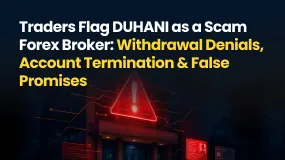
Traders Flag DUHANI as a Scam Forex Broker: Withdrawal Denials, Account Termination & False Promises
Lured into the DUHANI trading platform courtesy of the bonus offer that never existed? Did the forex broker prevent you from accessing your account and take away all your profits? Being promised a swap-free account but ended up paying a charge on closing a position? These experiences have become synonymous with DUHANI traders. Frustrated by these incidents, traders have opposed the broker online, with some of them even claiming to have recovered their stuck funds using legal means. Let’s check their negative reviews to find out the pain they have had trading via DUHANI.
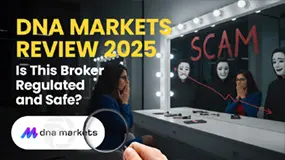
DNA Markets Review 2025: Is This Broker Regulated and Safe?
If you want to trade and earn, you should explore DNA Markets. But before investing your money with this broker, you should consider: Is this broker regulated? In this DNA Markets Review 2025, we will provide you with a complete evaluation of the broker.
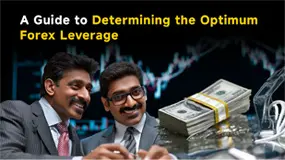
A Guide to Determining the Optimum Forex Leverage
Want to gain a wider forex market position control by investing a minimal amount? Consider using leverage in forex. It implies using borrowed funds to raise your trading position more than your cash balance can let you do it. Forex traders usually employ leverage to churn out profits from relatively small currency pair price changes. However, there is a double-edged sword with leverage since it can multiply profits as well as losses. Therefore, using leverage in the right amount is key for traders. Forex market leverage can be 50:1 to 100:1 or more, which remains significantly greater than the 2: leverage usually offered in equities and 15:1 leverage in futures.
WikiFX Broker
Latest News
Online Trading Scams in Europe Surge as 1,400 Sites Shut
Slippage in Forex Explained: Key Facts to Improve Your Trading Strategy
FSMA Belgium Warning: 17 Fraudulent Platforms Exposed
VITTAVERSE Review: Traders Report Withdrawal Denials and Broker Negligence
Top Crimes This Year: Romance & Investment Scams
ASIC Licence: A Practical Step-by-Step Guide to Verifying Forex Brokers
Tariffs are pushing prices higher and consumers are feeling the hit, Fed's Beige Book shows
New York Factory Activity Surged In October, Jobs & Orders Jump
Lirunex Introduces Sharia-Compliant Islamic Trading Accounts
ECN Forex Trading Account Explained: Unlocking Key Details for a Seamless Trading Experience
Rate Calc

